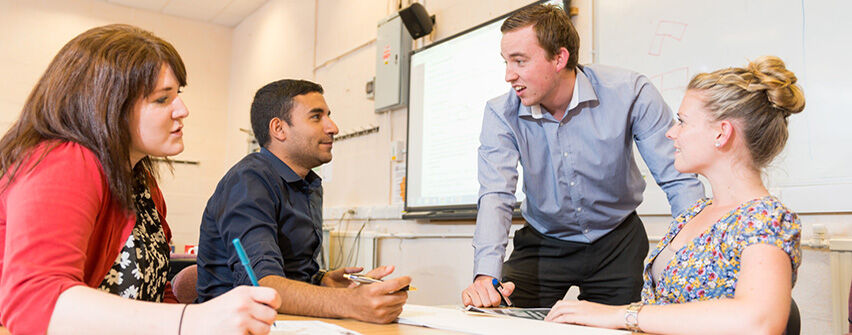This research contributed an understanding of professional development grounded in Froebelian principles. Using two case studies in Italy and London, I considered the current professional development offer while focussing on the ways in which educators develop and talk about their identities. Some of my key conclusions included: a need to abandon a deficit view of practitioners and their professional identities; a call for professional identity to be promoted as ever-changing and unfixed; a need for close links between practice context and professional development; and the acknowledgement that the process of self-recognition as a professional is constantly evolving and includes many sub-identities.
A Froebelian Lens
A Froebelian lens was adopted in this research as a vantage point from which to reconceptualise current Professional Learning and Development (PLD) offers in specific local practice contexts, in order to better explore the current offers in PLD for educators and their experiences.
Froebel saw the role of adults as extending children’s play, valuing child-initiated and child-directed activity over a prominently adult-led education which was the norm at the time (Bruce, 1997). Froebel (1906) stated that the process of education should not repeat itself in different forms through the lifespan but grow with the learner and understood that a holistic pedagogy requires holistically educated practitioners.
Introducing the case studies
In England the current provision for professional learning and development shows a wide range of localised variation, resulting in fragmentation of the quality of PLD offered.
In 2015 the Italian Early Childhood education system underwent a fundamental reform, the Buona Scuola (The Good School). Part of the reform was dedicated to integrating the Early Childhood Education and Care (ECEC) system, in terms of governance and school continuity for children from birth to six, with the compulsory school system, making the Italian ECEC system a unitary one under the responsibility of the Ministry of Education, University and Research.
Study design and methodology
I constructed two freestanding but related case studies (Stake, 2003), using each case to illuminate the other and adopted Grounded Theory and Situational Analysis as dynamic approaches to research, using semi-structured interviews and activity-based focus groups to collect the data from 20 early years educators in total.
Findings
This study found that educators considered PLD to be a fundamental investment to develop educators who are ‘democratic and active’ and who practice with an open mind (Dalli et al., 2012:8). Currently, PLD is used only to supplement educators’ existing qualities and add to their skills, without supporting them to engage in deeper discussions around their professional identities in relation to their professional experiences.
A process of soul-searching and deep inner exploration was usually the first step when entering the profession, the educators did not enter the job without an initial love for it. The educators also felt the need to be well versed on issues of confidentiality and children’s safeguarding in order to maintain a professional balance and a kind and caring side to their personalities, forming a stronger, more complex and varied professional identity as their careers progressed. The participants unanimously agreed that professionalism cannot be improvised but must be formed and supported adequately through PLD. None of the educators believed that they could ever reach the stage of professional identity development where they would not need to re-consider their understandings and reflections anymore. The educators understood and welcomed an ever-flowing, complex and varied professional identity and did not believe in the one-size-fits-all mentality of recent policy advances.
Who cares for the carer?
Urban et al. (2012) recommend the provision of opportunities for Early Childhood educators to share their in-work reflections within a peer group as part of institutional competence for the system. Both Louis (2020) and Elfer (2018; 2012) have proposed models of discussion and supervision to provide Early Childhood educators with two different ways to discuss their feelings and observations in a safe space with a group of colleagues. By allowing educators to talk through the demands of the job or situations that have evoked feelings of stress, they can be supported through negative feelings without being criticised for not being able to manage them (Elfer, 2012; Elfer et al., 2018). Offering these kinds of opportunities has the power to help educators to ground their practice, while, at the same time, realising their limitations while being supported by the group, which provides emotional security and a safe space to be vulnerable (Louis, 2020).
Educators’ feelings must be allowed to be discussed – if not it could lead to them trying to distance themselves from children and families, employing strategies to avoid forming close relationships with the children in their care, in order to protect themselves and cope with the increased demands of the role. It is imperative that Early Childhood educators are enabled by PLD opportunities to develop maturity and self-awareness in their roles, so that they can ‘become experts in themselves’ and understand ‘their own darker side’ as well as acknowledging their more positive sides (Manning-Morton, 2006:48).
Final thoughts
A revised PLD offer must combine a mutual interplay of theory and practice with a focus on sustaining the development of educators’ reflective competences (Urban et al., 2012; Balduzzi & Lazzari, 2014; Peeters, 2012). Future PLD provision must be diversified according to the educators’ profiles and competences (Migliorini et al., 2016), to grow with the learner and ensure that no one is left behind by always starting from where the learner is. Change requires cohesion between different sections of a competent system that values Early Childhood education and care as an important field worth investing in.
As Powell (2020) discussed during her seminar talk for the Froebel Network, the state of the current global economy, where state investments and funding for public services had already been reduced and have now been exacerbated even further by the global pandemic, will not be developing national discussions on childcare as a political priority. Without this, it remains challenging, if not impossible, to see how the status of the Early Childhood education and care workforce can really be given the respect it deserves, with adequate pay and conditions as a minimum requirement. Issues around the employment of women must also be addressed, together with an understanding of where the current growth of the commercial sector in the care and education of young children will leave discourses of care and love for young children and what place families and children will have in this discourse (Powell, 2020).
References
Balduzzi, L. & Lazzari, A. (2014) ‘Mentoring practices in workplace-based professional preparation: A critical analysis of policy development in the Italian context’ in Early Years 35(2), pp.124-138.
Bruce, T. (1997) Early Childhood Education. Oxon: Hodder & Stoughton.
Dalli, C., Miller, L. & Urban, M. (eds) (2012) Early Childhood Grows Up: Towards a Critical Ecology of the Profession. New York: Springer.
Elfer, P., Dearnley, K. & Wilson, D. (2018) ‘Work Discussion in English nurseries: Reflecting on their contribution so far and issues in developing their aims and processes; and the assessment of their impact in a climate of austerity and intense audit’ in Infant Observation 21(2), pp. 189-203.
Froebel, F. (1906) The Education of Man. London: Sidney Appleton.
Louis, S. (2020) How to use Work Group Supervision to Improve Early Years Practice. London: Routledge.
Manning-Morton, J. (2006) ‘The personal is professional: Professionalism and the birth to threes practitioner’ in Contemporary Issues in Early Childhood 7(1), pp. 42-52.
Peeters, J. (2012) ‘Childcare professionalism in Flanders: An inside-outside perspective’ in Dalli, C., Miller, L. & Urban, M. (eds) (2012) Early Childhood Grows Up: Towards a Critical Ecology of the Profession. New York: Springer.
Powell, S. (2020) ‘Who do we think they are?’ Presented at Froebel Network seminar Everyone’s a singer until they’re told they are not. Available at: https://www.youtube.com/watch?v=65LkRKg1atY (Accessed 19 October 2020).
Urban, M. (2012) ‘Researching Early Childhood policy and practice. A critical ecology’ in European Journal of Education 47(4) pp. 494-507.
Urban, M., Vandenbroeck, M., Van Laere, K., Lazzari, A. & Peeters, J. (2011) Competence Requirements in Early Childhood Education and Care (CoRe). Final Report. London and Ghent: European Commission Directorate General for Education and Culture.

